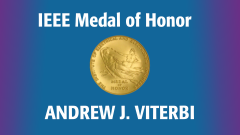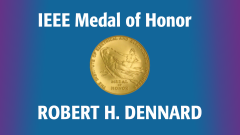Gianmarco Veruggio is an experimental robotic scientist who is also extensively involved with the ethics of robotics and its impact on the society. He was born in Sanremo, Italy, in 1953. He attended Classical High School in Sanremo and went on to get an Electrical Engineering degree from the Genoa University in 1980. For his Master’s thesis, Veruggio based his research on computer generated ship handling simulator and eventually joined the Naval Automation Institute in Genoa, and it was there he became interested in robotics, beginning his robotics work with underwater robots. At the Naval Automation Institute, Veruggio created the CNR-IAN Robotlab and was involved with designing robot prototypes that took part in Experimental and Scientific Expeditions in the Mediterranean, Antarctica, and the Artic. For the missions conducted in the Arctic and the Antarctica, Veruggio and his team members were able to accomplish the feat of exploring both poles with an internet controlled submarine robot. In addition to advancing the robotics field, Veruggio has also been involved with robot ethics, coining the term “roboethics”. Expanding on that effort, Veruggio founded an association called “Scuola di Robotica” (School of Robotics), through which he was able to promulgate the ethics of robotics to the general public. For his efforts in the field of science and ethics, Veruggio was awarded the title of Commander of the Order to the Merit of the Italian Republic in 2009, one of Italy’s highest civilian honors.
In this interview, Veruggio talks about his research interests, how became involved with robotics, his efforts in promoting ethical behavior in robotics, and the importance of educating the next generation of robotic scientists.
Gianmarco Veruggio is an experimental robotic scientist who is also extensively involved with the ethics of robotics and its impact on the society. He was born in Sanremo, Italy, in 1953. He attended Classical High School in Sanremo and went on to get an Electrical Engineering degree from the Genoa University in 1980. For his Master’s thesis, Veruggio based his research on computer generated ship handling simulator and eventually joined the Naval Automation Institute in Genoa, and it was there he became interested in robotics, beginning his robotics work with underwater robots. At the Naval Automation Institute, Veruggio created the CNR-IAN Robotlab and was involved with designing robot prototypes that took part in Experimental and Scientific Expeditions in the Mediterranean, Antarctica, and the Artic. For the missions conducted in the Arctic and the Antarctica, Veruggio and his team members were able to accomplish the feat of exploring both poles with an internet controlled submarine robot. In addition to advancing the robotics field, Veruggio has also been involved with robot ethics, coining the term “roboethics”. Expanding on that effort, Veruggio founded an association called “Scuola di Robotica” (School of Robotics), through which he was able to promulgate the ethics of robotics to the general public. For his efforts in the field of science and ethics, Veruggio was awarded the title of Commander of the Order to the Merit of the Italian Republic in 2009, one of Italy’s highest civilian honors.
In this interview, Veruggio talks about his research interests, how became involved with robotics, his efforts in promoting ethical behavior in robotics, and the importance of educating the next generation of robotic scientists.
 Cart
Cart Create Account
Create Account Sign In
Sign In





